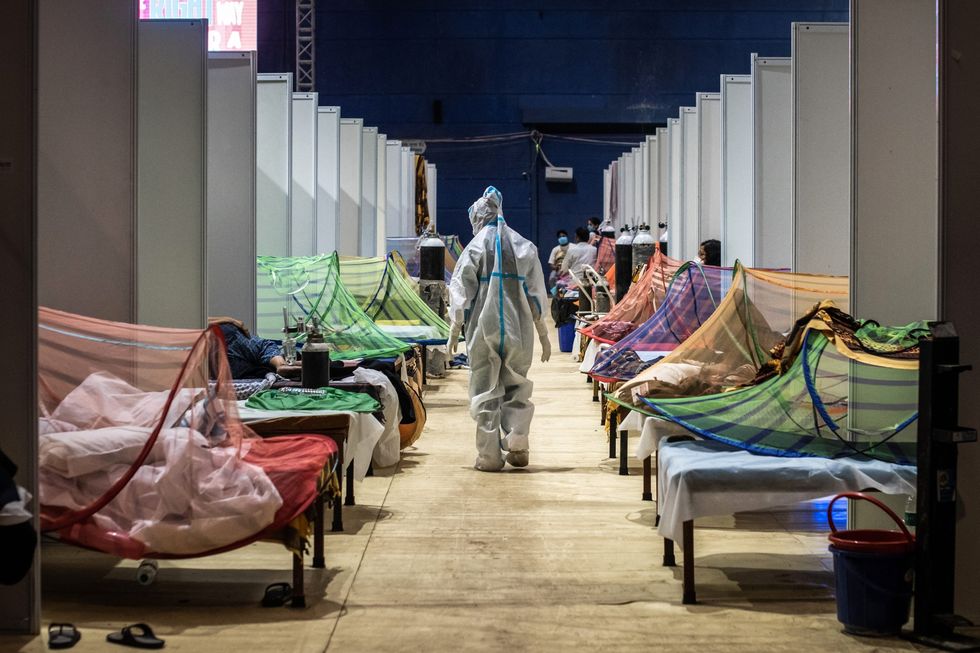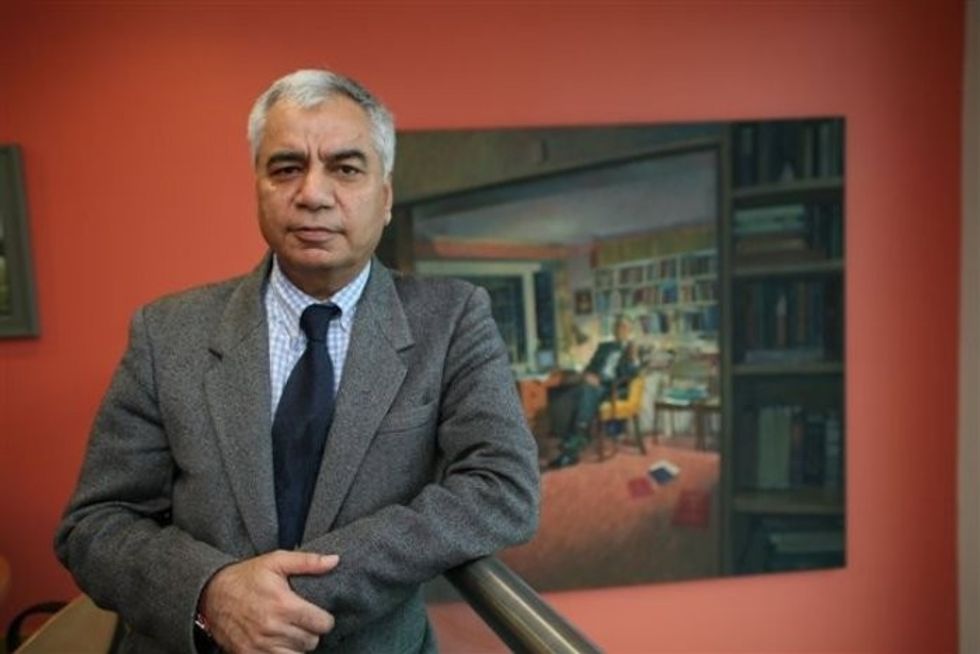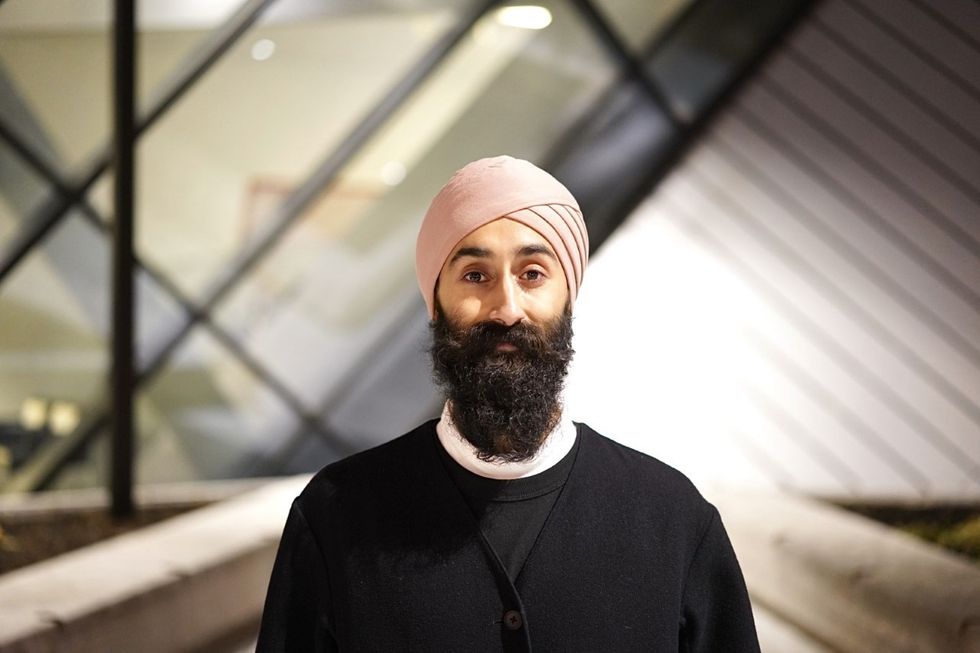by LAUREN CODLING
BRITISH INDIANS have spoken of their feelings of helplessness and anxiety about their families amid India’s devastating second Covid-19 wave, as the country continues to battle against the virus.
In recent weeks, India has become overwhelmed by the spike in coronavirus cases which has stretched demand in hospitals and crematoriums. As Eastern Eye went to press on Tuesday (18), at least 279,000 people had succumbed to the virus. There have been more than 25 million cases recorded, making India the second-worst nation affected in the world.
Many British Indians have been struggling with their mental health as they watch the situation from afar. Sejal Agarwal, 27, lives in the UK, while her family is in India. In recent weeks, some close family members have been hospitalised after being infected. Her parents caught the virus too and had to isolate for 10 days. They live alone in Kolkata, West Bengal, and were relying on other family members to provide them with food and everyday necessities, she revealed.
As she is currently in London, there is very little that Agarwal can do to help. “Being here has been very tough as there was no one to take care of my family,” she told Eastern Eye. “I couldn’t talk to (my parents) because they were so ill – they were sleeping all the time, not picking up the phone and my anxiety was just building up.”
During the pandemic, consultant psychiatrist Dr Mina Bobdey set up a support group for the British Asian community, and in the past few weeks, members of the group have expressed their fear and anxiety over the ongoing crisis in India.

Dr Bobdey said there was a widespread feeling of helplessness, as people were unable to assist their loved ones from the UK. Some of her own family members – among them an aunt – have died after contracting Covid in India. “All of us lost people who can afford treatment, but haven’t been able to get it,” she said. “The second wave has affected everybody. It’s a completely different situation (compared to the first wave) and it has really hit home.”
Psychiatrist Prof Dinesh Bhugra explained that worrying about close family, relatives and friends in India was natural. As British Asians may not be able to get in touch with family members due to lack of contact, he said, anxiety and worry about loved ones were likely to increase.
“A lack of proper contact can add to anxiety, and not being able to do very much can contribute to a sense of despair and depression,” Bhugra, who is emeritus professor of Mental Health and Cultural Diversity at King’s College London, told Eastern Eye. “Feeling trapped by not being able to travel or visit and provide close support can also add to feelings of despair.”
Shuranjeet Singh is the founder of Taraki Wellbeing, a mental health movement specifically supporting Punjabi communities in the UK. Having worked very closely with the community over the past three years as well as during the pandemic, Singh said it was apparent that events in other parts of the world can “most certainly impact diaspora and migrant communities elsewhere”.
“For those with family or friends in these places, there can be huge obstacles around grief, ensuring that proper funeral rites are undertaken, and even just trying to be there for those on the other side of the world,” he said. “Alongside their own experiences of Covid-19,
this can add to a huge mix of emotional challenges which impact the individual and those [close to them] more broadly.”

Reading recent news stories about the lack of oxygen, medicines and access to hospital beds in India can further add to a sense of despair and frustration, Bhugra added. Admitting she has had “numerous sleepless nights”, Agarwal has been keeping up to date with news about the ongoing crisis.
Describing the updates as “overwhelming and anxiety-inducing”, she referred to recent reports of bodies washing up on river banks around India. It is thought they are Covid-19 victims. “When you read stories (like that), it really freaks you out,” she said.
Asked if she had a support system in the UK, Agarwal said she has friends, but they were experiencing similar worries. “We talk, but the conversations are around Covid and how our families are doing,” she said. “We are all going through the same thing.”
Many British Asians are unable to attend funerals or see sick relatives, as strict quarantine and travel rules means they cannot fly back to India. This can cause numerous emotional challenges, experts said. Bhurga explained that performing rituals was crucial to dealing with loss and death. If people were unable to do so and say goodbye to loved ones, it could negativity impact the grieving process, he added.
“Accepting the loss is a key step in dealing with and managing grief,” said Bhugra. “For many Asian communities, appropriate rituals can (help) in managing grief and abnormal bereavement reactions can then lead on to depression.”

Singh agreed that being unable to process their loss properly due to the pandemic could be a huge challenge for people. He said the lack of collective support in the current circumstances could present numerous emotional challenges for those affected, including low moods and feeling nervous about the future.
Like many in the community, Dr Bobdey knows about other people who have lost loved ones, but have been unable to attend their funerals in India. “A colleague’s father passed away and she couldn’t go (to the funeral),” she said. “Another friend has had the same thing happen– her father passed away and she is unable to go back to India.
“There is a feeling of survivor’s guilt, the guilt of not being able to be with them. And despite being in the medical field, we aren’t able to help them and there is a feeling of helplessness which comes with that.”
Offering advice for those who may be feeling overwhelmed by the ongoing crisis, Bhugra said they should seek help from support groups or mental health charities. “Manage your anxiety by sharing concerns and carry out appropriate rituals if you feel these would be helpful,” he said.
Singh recommended people check in on those around them. He said: “Family, friends, relatives, each of us is going through particular challenges and knowing that you have someone there is indispensable.”
If you are affected by this story, you can contact these free mental health support services:
- Mind: www.mind.org.uk
- South Asian Health Foundation: www.sahf.org.uk/
- The Black, African and Asian Therapy Network: www.baatn.org.uk/free-services/
- Taraki Wellbeing: www.taraki.co.uk/
- Boloh (Barnardo’s specialist helpline for the BAME population):
call 0800 1512605


















